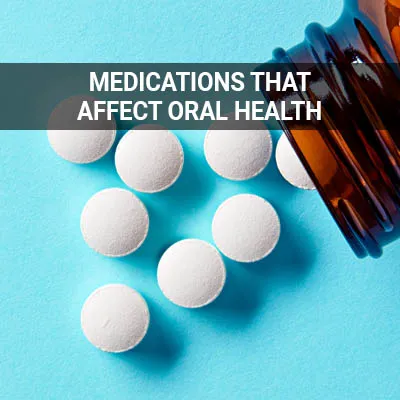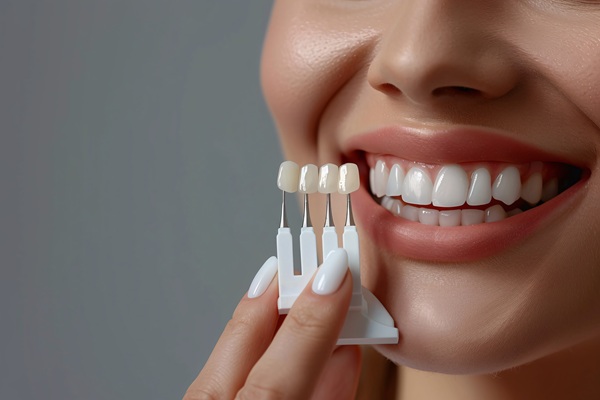Diseases Linked to Dental Health Glendale, AZ
In recent years, general dentistry has evolved to emphasize the connection between oral health and overall well-being. The mouth is the primary entryway for bacteria to reach other parts of the body, contributing to conditions such as cardiovascular disease, diabetes, and respiratory infections. By identifying and treating oral health diseases, general dentists help reduce the risk of their effects on systemic health conditions, supporting patients’ oral and overall health through routine preventive care.
Many oral and systemic health conditions coincide and simultaneously affect one another. Understanding the oral-systemic link and preventive treatments can greatly improve your oral health and overall well-being. At Winning Smiles Dentistry in Glendale, we can help you understand the effect of oral diseases on your overall health. Our team can help you better understand the connection between oral and systemic health. Call us at (623) 201-4557 to schedule a consultation today.
Causal Factors of Various Mouth Conditions
Unhealthy habits are at the heart of several oral health conditions. Excessive alcohol consumption, inadequate dental hygiene, poor nutrition, and smoking are just a few of the leading culprits of mouth conditions. Genetics can also contribute — these may be hereditary or attributed to prenatal behaviors.
In most cases, the best line of defense against such factors is a healthy lifestyle. Patients who drink or smoke should cut back as much as possible. However, other causal factors, such as genetics, may be harder to control. As such, it is critical that patients make regular dental visits at least once or twice a year.
A proper oral hygiene routine and overall healthful lifestyle can also help prevent all patients from worsening their conditions. According to Healthline, everyone should brush their teeth at least twice a day. Use a fluoridated toothpaste and floss nightly. Make sure to drink enough water and limit sugary and acidic foods.
“A proper oral hygiene routine and overall healthful lifestyle can also help prevent all patients from worsening their conditions.”
Heart Conditions
Heart Disease
Poor oral health increases the risk of bacteria and infection entering the bloodstream, particularly affecting patients with artificial heart valves. The Mayo Clinic found that "heart disease, clogged arteries, and stroke might be linked to the inflammation and infections that oral bacteria can cause." Periodontal disease, a severe form of gum disease, is associated with an increased risk of developing a heart condition.
Endocarditis
Endocarditis is an infection in the inner lining of the heart chambers caused by bacteria in the bloodstream. Bacteria, fungi, infections, and viruses attach to certain parts of the heart and clog the heart chambers or valves (endocardium). Going without treatment can lead to various health complications and fatal risks.
“Gum disease, and its severe form periodontal disease, is associated with an increased risk of developing a heart condition.”
Gut Health, Immunodeficiencies, & Oral Health
Though research on oral microbiomes is still expanding, existing literature makes it clear that it can cause both oral and systemic conditions. When the oral microbiome‘s equilibrium is disturbed, disease-causing pathogens may manifest. These pathogens may make their way throughout the rest of the body in return.
This poses an especially big risk for those with immunodeficiencies or conditions that weaken the body‘s immune system. There are over 300 types of immunodeficiencies, many of which are associated with malnutrition and poor oral hygiene. According to one study, bacterial plaque-related periodontal diseases also seem to be especially sensitive to the innate system‘s primary deficiencies.
“There are over 300 types of immunodeficiencies, many of which are associated with malnutrition and poor oral hygiene.”
Check out what others are saying about our dental services on Yelp: Diseases Linked to Dental Health in Glendale, AZ
Prenatal Oral Health
Oral healthcare is especially important during the prenatal period, as bacteria can now affect both the mother and the unborn fetus. In one study, women who did not receive dental care proved to be 15% more likely to experience preterm delivery, likely due to infection and inflammation associated with untreated dental disease.
Periodontal disease during pregnancy should be treated with the same severity as any other type of infection. At least one study suggests similarities between oral microbiota and opportunistic pathogens in the lower genital tract that may affect the labor process. Additionally, women with periodontal disease were up to seven times more likely to have a baby born too early and too small.
“Periodontal disease during pregnancy should be treated with the same severity as any other type of infection.”
Questions Answered on This Page
Q. How does poor oral health affect the heart?
Q. What causes oral health conditions?
Q. Why is the oral microbiome important to systemic health?
Q. What is the link between oral health and premature births?
People Also Ask
Q. Are oral conditions genetic or a result of environmental factors?
Q. What are the signs of gum disease?
Q. What are the health risks of gum disease?
Treatments for Those Suffering
Prevention
A basic understanding of the oral-systemic connection is integral in addressing health conditions and their effects on the body. A well-balanced, healthy lifestyle consists of a diet low in sugar and high in fruits and vegetables, cutting out all forms of tobacco, reducing alcohol intake, and brushing teeth twice daily with an optimal amount of fluoride (1000 to 1500 ppm). Fluoride is a naturally-occurring mineral that protects the tooth's enamel and is crucial for maintaining good oral hygiene.
Treatments
Minor treatments, such as cavities and caries, require minimally-invasive treatments that remove the infection or decay and are covered with a filling, crown, or sealant. More invasive procedures, such as flap surgery, bone grafting, extractions, and implants, are performed for gum disease, oral cancers, flap disease, or other severe conditions. The earlier a condition is diagnosed, the more effective and successful the treatment is.
Frequently Asked Questions About Diseases Linked to Dental Health
Q. Why is patient education important?
A. We believe that dentist-patient relationships should be collaborative, meaning the patient takes an active part in their own dental care. Many patients do not understand the link between oral health and their systemic health conditions. Fortunately, patient education can empower them to make informed decisions about their dental and general health.
Q. Is there a link between chronic inflammation and periodontal disease?
A. Yes. Chronic gum inflammation is one of the top causes of periodontal diseases. When periodontal disease occurs, it creates pockets between the gums and teeth and fills them with bacteria, plaque, and tartar. If left untreated, these pockets become deeper over time, leading the inflammation to spread to other parts of the body.
Q. How does smoking factor into the oral-systemic connection?
A. Tobacco products affect the oral cavity just as they affect all other systems of the body. It allows numerous chemicals to enter the body and also allows bacteria to flow through several other bodily systems. Additionally, it limits saliva flow, which causes bacteria to stick to the teeth and gums. This may lead to plaque and infections.
Q. Can a general dentist identify symptoms of systemic disease during a dental checkup?
A. Many systemic diseases can cause tooth decay and tooth loss. Many are also linked to periodontal disease, which is associated with harmful bacteria linked to various conditions. If your medical, family, or dental history indicates risk factors, our team may recommend scheduling an appointment with your primary care provider for a medical diagnosis. Additionally, we can conduct oral cancer screenings to catch the disease in its early stages and refer you to a specialist for additional treatment.
Q. What is the healthy mouth baseline and what is its role in general dentistry?
A. The healthy mouth baseline is what the mouth should look like when it is in ideal health. We will go over this baseline with you during your initial consultation and compare and contrast it to your own mouth. Then, our team will devise a treatment plan custom-made to your unique needs.
Dental Terminology
Learn More Today
If you are interested in better understanding the link between oral and overall health, call us at 623-201-4557 to set up an appointment.
Helpful Related Links
- American Dental Association (ADA). Glossary of Dental Clinical Terms. 2025
About our business and website security
- Winning Smiles Dentistry was established in 2004.
- We accept the following payment methods: American Express, Cash, Check, Discover, MasterCard, and Visa
- We serve patients from the following counties: Maricopa County
- We serve patients from the following cities: Glendale, Arrowhead, Phoenix, Peoria, Sun City, Tolleson, Youngtown, El Mirage, Litchfield Park, Union Hills, Anthem and Goodyear
- National Provider Identifier Database (1942363775). View NPI Registry Information
- Healthgrades. View Background Information and Reviews
- Norton Safe Web. View Details
- Trend Micro Site Safety Center. View Details
Back to top of Diseases Linked to Dental Health















